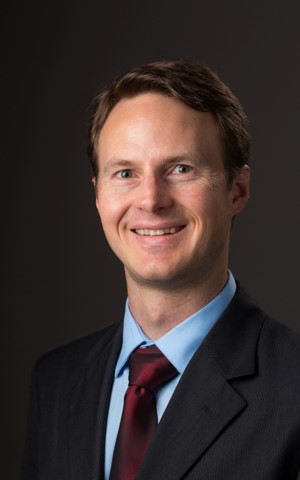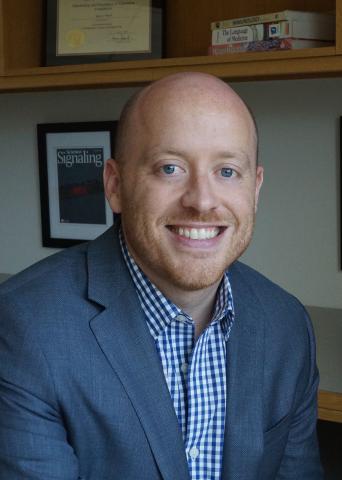Ibrahim Domian, MD, PhD, Assistant Professor in Medicine, Harvard Medical School and Massachusetts General Hospital. Dr. Domian’s research efforts are focused on adapting findings from basic developmental and stem cell biology to translational cardiovascular medicine. He obtained his MD/PhD from Stanford University School of Medicine as part of the Medical Scientist Training Program. Upon completion of his doctoral training, Ibrahim served as a medical intern, resident, and cardiology fellow at the Massachusetts General Hospital. He joined the faculty of Harvard Medical School and Massachusetts General Hospital in 2009. He is certified in Cardiovascular Disease and Interventional Cardiology by the American Board of Internal Medicine. As a physician-scientist with broad interest in cardiac development and stem cell biology, Dr. Domian has focused his laboratory on two interrelated questions. First, what are the developmental processes that control cardiac progenitor expansion, differentiation, and maturation? And second, how can we adapt insights from developmental and stem cell biology toward clinical applications? To address these questions and bring the promise of stem cell biology to the clinic, the Domian laboratory combines tissue engineering technology with pluripotent stem cell biology to develop in vitro models of cardiac development and disease.
 Martin Kriegel, MD, PhD, Assistant Professor of Immunobiology and of Medicine (Rheumatology), Yale School of Medicine. Dr. Kriegel’s laboratory focuses on host-microbiota interactions in immune-mediated diseases, investigating how gut and skin commensals influence immune cell function. His group also studies the impact of diet and genetics on the microbiomes of autoimmune-prone hosts. To address these questions, they utilize in vitro cell-based models and in vivo gnotobiotic approaches. Martin received his MD/PhD equivalent from the University of Erlangen, Germany, and performed postdoctoral training in immunology at Yale and Harvard. He has also completed a medicine residency at BIDMC and a rheumatology fellowship at Brigham and Women’s Hospital, both in Boston, Massachusetts. In 2012, Dr. Kriegel returned to Yale as an Assistant Professor in the Department of Immunobiology. He also serves as a board-certified rheumatologist at Yale-New Haven Hospital. He was an Emmy-Noether Scholar of the German Research Foundation, an Arthritis National Research Foundation Scholar, an awardee of the Lupus Research Institute, the Arthritis Foundation and the Rheumatology Research Foundation. He serves as an Advisory Editor for Arthritis & Rheumatology and as a Guest Editor for Clinical Immunology.
Martin Kriegel, MD, PhD, Assistant Professor of Immunobiology and of Medicine (Rheumatology), Yale School of Medicine. Dr. Kriegel’s laboratory focuses on host-microbiota interactions in immune-mediated diseases, investigating how gut and skin commensals influence immune cell function. His group also studies the impact of diet and genetics on the microbiomes of autoimmune-prone hosts. To address these questions, they utilize in vitro cell-based models and in vivo gnotobiotic approaches. Martin received his MD/PhD equivalent from the University of Erlangen, Germany, and performed postdoctoral training in immunology at Yale and Harvard. He has also completed a medicine residency at BIDMC and a rheumatology fellowship at Brigham and Women’s Hospital, both in Boston, Massachusetts. In 2012, Dr. Kriegel returned to Yale as an Assistant Professor in the Department of Immunobiology. He also serves as a board-certified rheumatologist at Yale-New Haven Hospital. He was an Emmy-Noether Scholar of the German Research Foundation, an Arthritis National Research Foundation Scholar, an awardee of the Lupus Research Institute, the Arthritis Foundation and the Rheumatology Research Foundation. He serves as an Advisory Editor for Arthritis & Rheumatology and as a Guest Editor for Clinical Immunology. Kris Wood, PhD, Assistant Professor, Department of Pharmacology and Cancer Biology, Duke University. The research in Dr. Wood’s lab focuses on anti-cancer drug resistance. More specifically, his group wants to know why well-designed drugs fail, either in the upfront setting or over time. To address this problem, they use custom functional genomic screening technologies alongside primary cellular models of cancer, animal models and the basic tools of biochemistry and genetics. A 2014 Science Signaling article describes this “pathway activation” screening as a strategy to map signaling pathways driving therapeutic resistance, paving the way for subsequent work in his lab and others. Dr. Wood earned his PhD in Chemical Engineering from the Massachusetts Institute of Technology, followed by an NIH Postdoctoral Fellowship at the Whitehead Institute for Biomedical Research, the Broad Institute of Harvard and MIT, and the Howard Hughes Medical Institute. In 2012 Kris joined the Duke University faculty as an Assistant Professor in the School of Medicine, where he is also a member of the Duke Cancer Institute. Dr. wood is a member of the Board of Associate Scientific Advisors for Science Translational Medicine, and a recipient of the Breakthrough Award, DoD Breast Cancer Research Program.
Kris Wood, PhD, Assistant Professor, Department of Pharmacology and Cancer Biology, Duke University. The research in Dr. Wood’s lab focuses on anti-cancer drug resistance. More specifically, his group wants to know why well-designed drugs fail, either in the upfront setting or over time. To address this problem, they use custom functional genomic screening technologies alongside primary cellular models of cancer, animal models and the basic tools of biochemistry and genetics. A 2014 Science Signaling article describes this “pathway activation” screening as a strategy to map signaling pathways driving therapeutic resistance, paving the way for subsequent work in his lab and others. Dr. Wood earned his PhD in Chemical Engineering from the Massachusetts Institute of Technology, followed by an NIH Postdoctoral Fellowship at the Whitehead Institute for Biomedical Research, the Broad Institute of Harvard and MIT, and the Howard Hughes Medical Institute. In 2012 Kris joined the Duke University faculty as an Assistant Professor in the School of Medicine, where he is also a member of the Duke Cancer Institute. Dr. wood is a member of the Board of Associate Scientific Advisors for Science Translational Medicine, and a recipient of the Breakthrough Award, DoD Breast Cancer Research Program.
